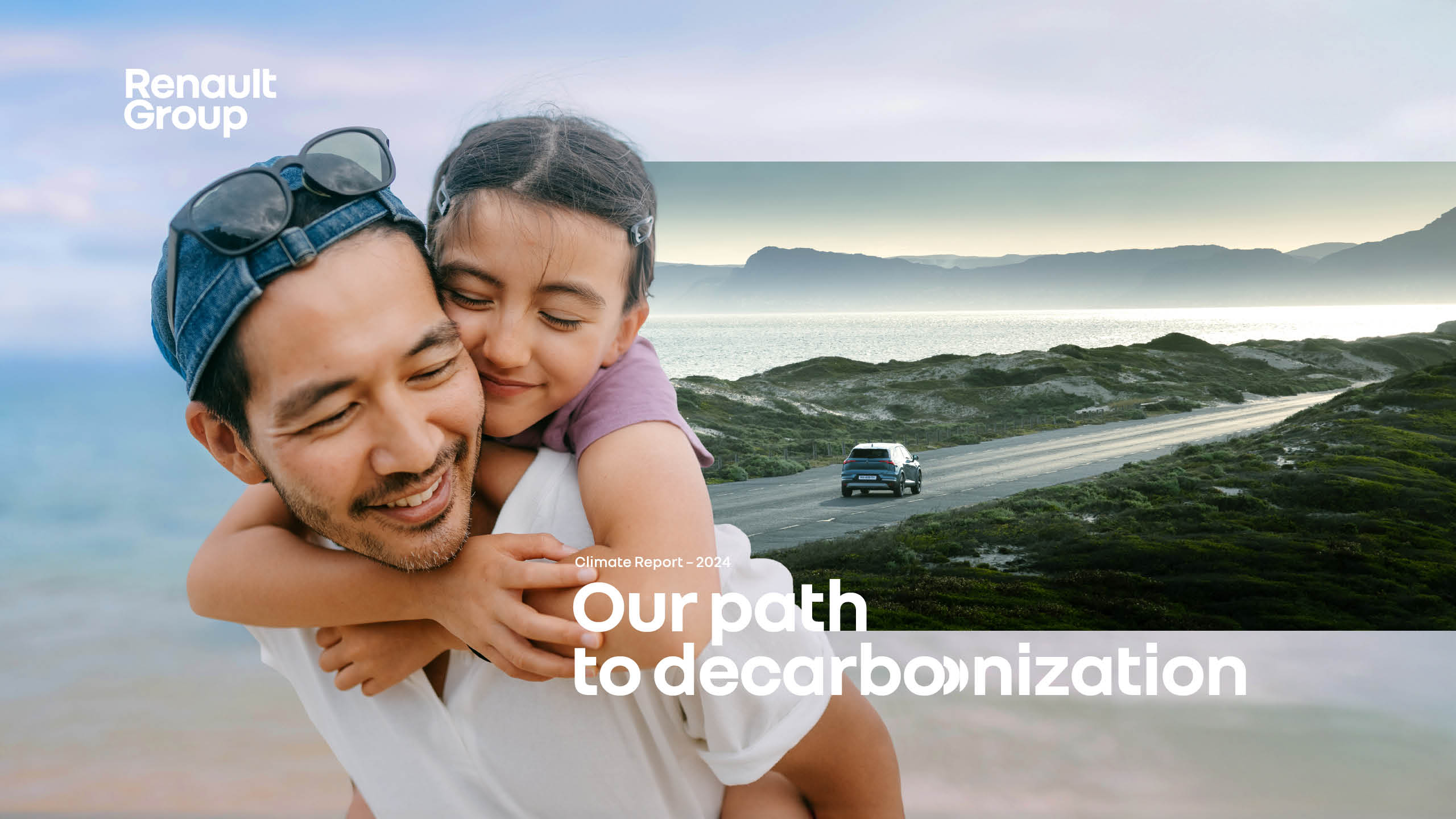FutuRGen Insight – « The drive for decarbonizaton is shared across the entire Group. »
Published on
Climate change has gone from being a matter for experts to a strategic and operational issue for the Renault Group. The publication of the company’s second climate report is the opportunity for Cléa Martinet, Director of Sustainable Development, to looks back at the Group’s climate strategy and its initial results.
We started from a solid base, with commitments and expertise both anchored in the company since 2008. The 28% reduction in the Group's footprint between 2010 and 2023 is the fruit of this effort, particularly driven by the electrification of the range.
We are now going even further, by including decarbonization objectives right from the design stage of our vehicles, whatever their powertrain. In this way, we are working on the car's entire life cycle, including the reduction of emissions linked to the production of materials and components making up the vehicle. Our ambition? Achieve net zero carbon by 2040 in Europe and 2050 worldwide.
This approach to the vehicle places decarbonization at the heart of the Group's operations. The climate issue has now moved into our operations, upstream with our suppliers, in manufacturing at our plants, and downstream, on the roads, with the emphasis on electric powertrains and the development of our circular economy activities.
"We're seeing a very concrete take-up of the subject, at core levels of the company, including the Executive Committee and the Board of Directors, whose members are committed to the subject. We are following an educational and transparent approach within the company which is illustrated by the introduction of a tool that calculates the carbon footprint of all our vehicles. It is accessible to all, enabling employees to understand in concrete terms how to decarbonize a vehicle, and to identify their own levers for action. The main business lines are now focusing on this issue, especially our product, purchasing and engineering teams.."

Group brands contribute to the decarbonization trajectory
Our climate trajectory is a key strategic lever for our brands and for our partnership approach. The brands contribute to the Group's objectives according to their own identity, as has the Renault brand with its commitments to electric vehicles with a reduced carbon footprint, Dacia with lighter, low-carbon combustion vehicles made from recycled materials, and Alpine, which is aiming for a 100% electric range by 2026.
To ensure the success of our trajectory, it is essential to operate as an ecosystem, with everyone contributing in different ways to the roadmap. The Group's decarbonization strategy has led us to seek out partners with complementary technologies and skills, whether it's decarbonized last-mile delivery with CMA CGM and Volvo, decarbonizing the energy used in our factories, or co-innovating on battery recycling to feed the closed-loop model we've created with The Future Is NEUTRAL.
Solving the three paradoxes of the energy transition
We also want the Group's decarbonization to be carried out as fairly as possible. The energy transition requires us to navigate between several paradoxes: first of all, switching to electric power while maintaining employment. So, when Renault Group chooses to make France a land of electric excellence, it does so with a massive skills development plan for its employees. This is the role of the ReKnow University, which has already trained 38,500 people, including 500 employees of our suppliers.
The second paradox is to make the switch to electric vehicles while remaining affordable for our customers, even though the cost of an electric vehicle is much higher than the cost of a combustion-powered vehicle. This is the roadmap of our dedicated electric vehicle subsidiary, Ampere, which aims to reduce the development costs of an electric vehicle by 40% between the first and second generation of electric vehicles.
Finally, the third paradox is that the energy transition must take place without depleting the planet's resources, even though battery production - extraction, refining - raises major environmental and social issues. We have therefore extended the zone of control over our supply chain and require our partners to comply with our ESG standards.
Cléa Martinet
Vice President Sustainable Development, Renault Group.